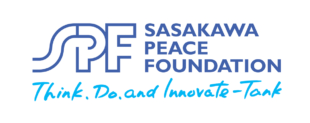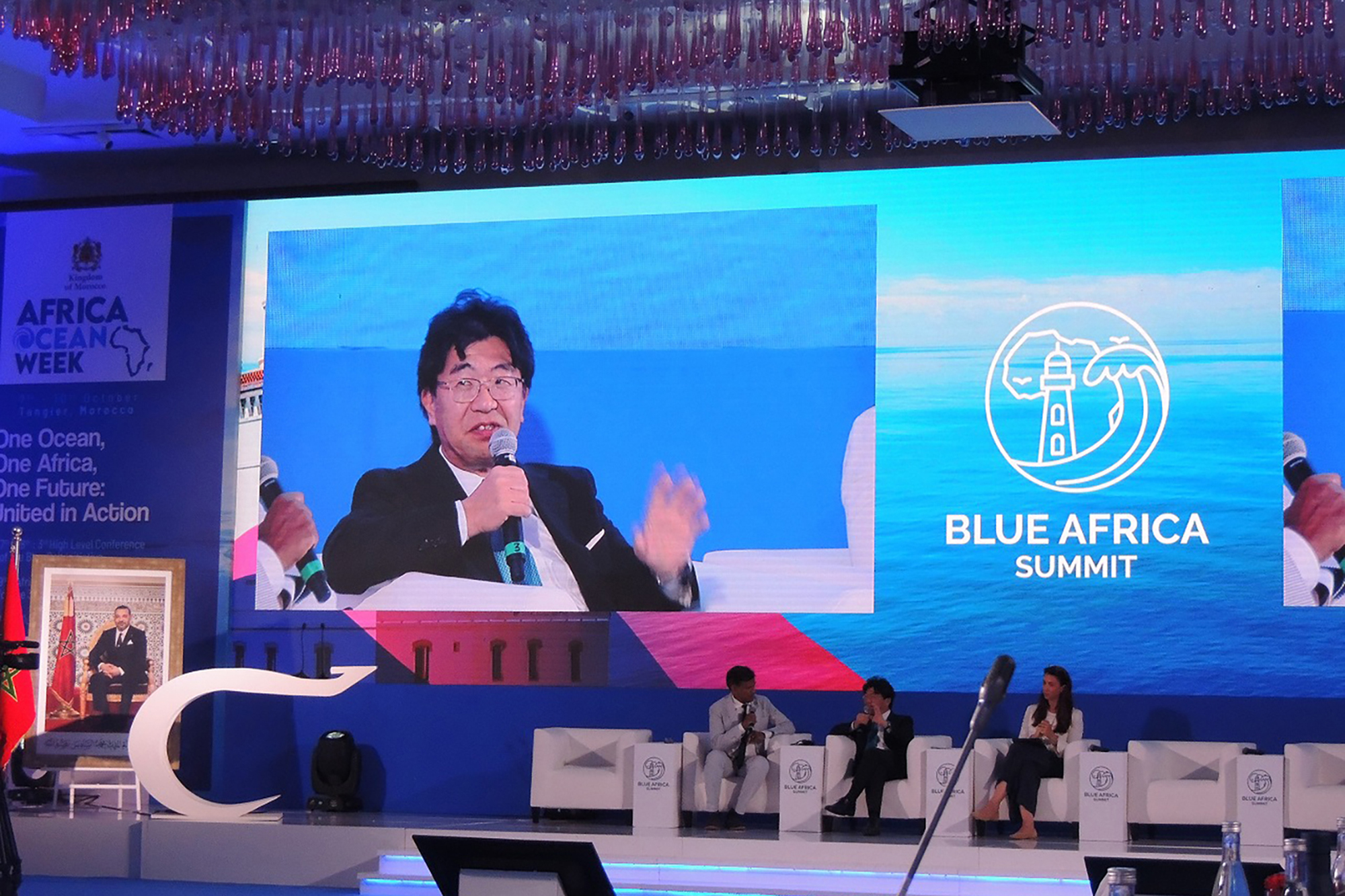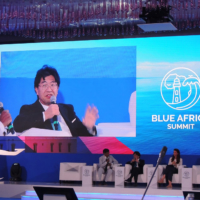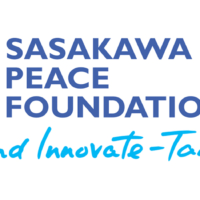Achieving a sustainable ocean requires effective policies, institutional transformation and stakeholder collaboration. The Ocean Policy Research Institute of the Sasakawa Peace Foundation undertakes policy research, facilitates stakeholder dialogue and supports interdisciplinary science, education and human resource development. The institute, established in 2002, was merged with SPF in 2015. With support from the Nippon Foundation, OPRI-SPF spearheads a wide range of policy research and project activities focused on ocean issues, including those related to small island countries.
Multiple sectors involve the ocean, such as fisheries, aquaculture, tourism, maritime transportation, ocean-based renewable energy and maritime security. Their various objectives can sometimes conflict, making it essential to promote co-benefits, identify synergies and optimize trade-offs. Cross-sectoral and interdisciplinary policy analysis is therefore vital. OPRI promotes policy dialogues among multiple stakeholders from holistic perspectives to facilitate policy coordination and foster collaboration.
Local and regional characteristics must also be considered when developing policies for a sustainable ocean. OPRI supports regional-level multistakeholder dialogues to reflect these characteristics in policy development and to advance regional cooperation.
This March, SPF collaborated with the Nippon Foundation and The Economist to organize the World Ocean Summit and the World Island Forum in Tokyo. During the same week, SPF hosted the “sherpa” meeting of the High Level Panel for a Sustainable Ocean Economy (also known simply as the Ocean Panel) in collaboration with Japan’s Ministry of Foreign Affairs and the World Resources Institute. SPF also hosted the Asia-Pacific chapter meeting of the Friends of Ocean Action of the World Economic Forum.
Pacific island countries have been vocal in calling for the urgent implementation of measures to reduce greenhouse gas emissions and keep the global temperature increase within a threshold of 1.5 degrees Celsius. These nations are particularly vulnerable to the impacts of climate change, including more frequent and intense typhoons, cyclones and hurricanes, and rising sea levels.
There are also projections of declining fish catches in some parts of the Pacific, as warming ocean waters may cause migratory fish species to shift poleward, away from the exclusive economic zones of some island countries. Due to the relatively small size of their economies, the budgets proposed for adaptation to climate change are small and often don’t meet thresholds for external funding. One of the key challenges is for Pacific island countries to collaborate in identifying shared challenges and coordinating responses. By developing regionwide project proposals, they can increase the scale of funding requests and improve their eligibility for support from international financing organizations. It is also vital to develop the capacity to design and implement projects. It has been proposed that an institute like OPRI help island countries in organizing dialogues, developing project proposals and facilitating access to financing from multiple sources including governments, philanthropic organizations and the private sector.
At the summit and forum, Palau President Surangel Whipps Jr. emphasized the importance of materializing blended financing to support the implementation of the Palau Blue Prosperity Plan and the Pacific island countries’ Unlocking Blue Pacific Prosperity initiative. Filimon Manoni, formerly the attorney general of the Marshall Islands, serves as the Pacific Ocean commissioner of the Pacific Islands Forum. The Office of the Pacific Ocean Commissioner has been relocated from Fiji to Palau, and expectations are that it will play a more instrumental role in advancing regional cooperation toward achieving a sustainable ocean and addressing the ocean-climate nexus.
SPF hosted an international ocean seminar with the Friends of Ocean Action and the International Union for Conservation of Nature to discuss strategies for achieving the target of expanding marine protected areas to 30% of the global ocean by 2030, addressing ocean acidification and promoting “blue finance.”
OPRI also collaborates with the Japan Blue Economy Association to promote the conservation and restoration of marine ecosystems. The association certifies carbon sequestered by conserved or restored seagrass and issues J-Blue Credit certificates, which companies purchase to offset their greenhouse gas emissions, thereby providing incentives to seaweed farmers and conservation organizations. OPRI also contributes to Friends of Ocean Action discussions on blue impact finance.
Additionally, OPRI manages the Ocean Shot project, a research initiative that was launched in 2023 with support from the Nippon Foundation. Ocean Shot provides grants for research aimed at discovering new marine species and ecosystems, as well as collecting related data and developing technological applications. In 2023, four proposals were selected from among 30 applications. The second round of proposals were selected in 2024, and the call for 2025 is expected to be released shortly.
OPRI also manages the Ocean Education Pioneer School Program, which supports elementary, junior and senior high schools in designing and implementing ocean education initiatives. These schools engage with local organizations to give students opportunities to learn about coastal and marine ecosystems and explore solutions to the challenges they face. OPRI also manages a fellowship program that supports students studying at the World Maritime University in Malmo, Sweden. Each year, OPRI hosts fellows from the university for two weeks of training in Japan. OPRI has collaborated with Nelson Mandela University in South Africa and the Marine Science Institute of the University of the Philippines Diliman to design a pragmatic, intensive leadership development program for sustainable blue economies.
The Sasakawa Peace Foundation has convened a high-level expert meeting on sustainable blue economies in Africa. Africa’s population has been growing steadily, making sustainable blue food an important policy objective to ensure food security. At the same time, it is essential for the continent to conserve marine and coastal ecosystems, promote sustainable fisheries and aquaculture, and eliminate illegal, unreported and unregulated (IUU) fishing.
Africa also faces multiple challenges, including climate change and human-induced impacts that have adversely affected coastal fisheries. As the government of Japan prepares to host the ninth Tokyo International Conference on African Development in Yokohama this August, SPF aims to develop policy recommendations and build networks to foster partnerships for implementing programs and projects that support sustainable blue economies in Africa.
Mitsutaku Makino has directed the OPRI program since January while concurrently serving as a professor at the Atmosphere and Ocean Research Institute at the University of Tokyo.
The president of the Sasakawa Peace Foundation, Atsushi Sunami, said, “We must act more proactively to engage various stakeholders around the world in forging concerted actions to achieve a sustainable ocean.”






